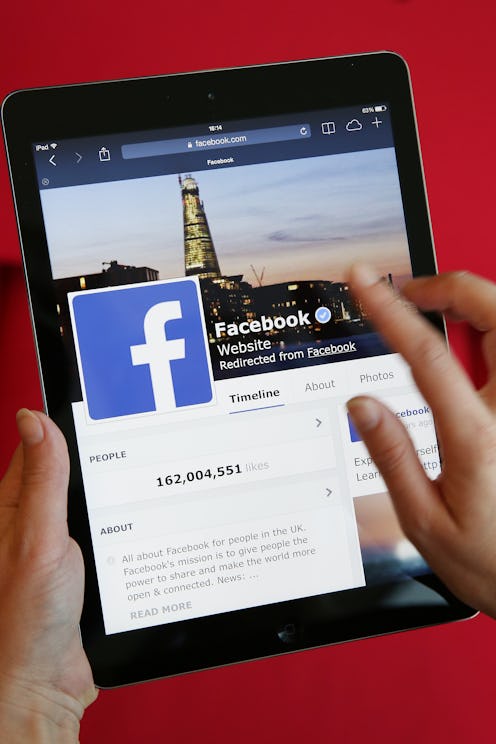Life
When Is The Best Time To Post on Facebook?
We've all been there: That awkward moment when you make a Facebook status with a clever pun or song lyric that totally just get you... and then no one "likes" or comments on it it. Maybe you didn't post it at the right time. A recent study answers the question, "When is the best time to post on Facebook?", so the good news is that now you can plan your posts for maximum engagement. There's just one problem: You'll have to make sure your boss doesn't catch you doing it.
"One of the goals while broadcasting messages is to capture the attention of audience members so that they may react to the posted message," wrote researchers from Lithium Technologies in San Francisco, who conducted the study. "The probability that an audience member reacts to a message may depend on several factors, such as his daily and weekly behavior patterns, his location or timezone, and the volume of other messages competing for his attention."
Researchers first studied user behavior including post-to-reaction times — that is, the amount of time it takes someone to like or comment on those T Swift lyrics you posted this morning. They also compared reaction behavior across different networks, Facebook and Twitter, and for users in different cities, performing an analysis on over one billion posted messages and observed reactions. Based on this analysis, the researchers then came up with "personalized posting schedules" to asses if they had an effect on reactions to posts.
The researchers then took their data set, which held timestamps from a huge number of posts (144 million, to be precise) and reactions (1.1 billion) over a 120-day period, and analyzed it using Klout. For the curious, Klout has the power both to aggregate and analyze data from pretty much every social media network you can think of. From there, the system was able to come up with personalized posting schedules — schedules that will allow you to get the most “like” for your post.
So: When is the best time to post on Facebook? The answer is both somewhat surprising and not surprising at all: On weekdays during working hours, and then again between 7 pm and 8 pm. On the weekends there's a major drop-off in reactions. Why? Well...
That, basically. The lesson here? If you're really feeling yourself on Friday evening, wait to post that photo on until Monday afternoon. Work breaks are good for us, and since work breaks are also pretty much what social media is for — well, you do the math.
Internet habits do vary depending on where you are, by the way. Wrote the researchers:
[The] U.S. cities of San Francisco and New York exhibit similar shapes, where reactions peak at the beginning of work hours. For Paris, the reactions peak in the second half of working hours, while for London most reactions are expected towards the end of working hours. Finally, the pattern for Tokyo is quite different from the rest with two peaks, both occurring off working hours.
This is important for businesses who are trying to connect with consumers in different areas... or if your new social media crush lives halfway across the globe.
Also, if you want immediate gratification, Twitter might be the way to go. The study found that it sees bigger peaks in usage, has twice the chance of eliciting responses, and reaction times are much faster compared to Facebook. On Facebook it takes up to two hours for the first half of the responses to come in; on Twitter, however, most responses come in within half of an hour.
So hey: If you're upset about nobody liking that really "funny" status you posted that one time, or you didn't get any retweets on that "awesome" meme you made... well, now you can just blame it on timing.
Images: Getty Images; Giphy (4)
